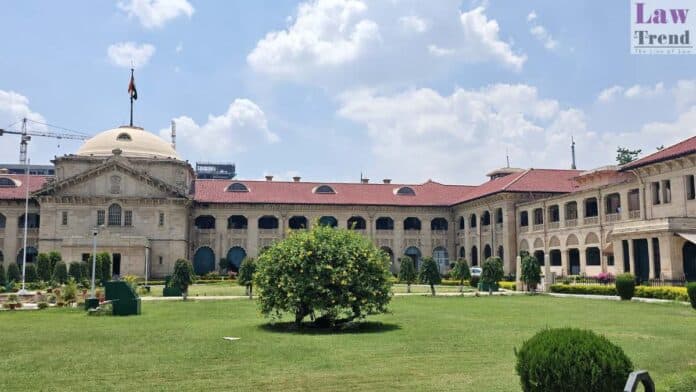The Allahabad High Court has ruled that individuals holding Adib-E-Kamil and Moallim-E-Urdu degrees from Jamia Urdu, Aligarh are not entitled to appointment as assistant Urdu teachers in Uttar Pradesh primary schools, stating that the institute is distributing degrees without proper educational conduct.
Justice Saurabh Shyam Shamshery dismissed a writ petition filed by Azahar Ali and others who had challenged the cancellation of their appointments as Urdu assistant teachers. The petitioners contended that they were eligible for appointment based on their Adib-E-Kamil qualifications from Jamia Urdu and had also cleared the Uttar Pradesh Teacher Eligibility Test (UPTET) in 2013.
However, the Court noted glaring irregularities. “The petitioner passed Intermediate in July 1995, took admission in Jamia Urdu in the same month, and appeared for the Adib-E-Kamil examination just four months later in November 1995. The result was declared in July 1996, and another certificate shows Moallim-E-Urdu was passed in February 1997. This timeline lacks credibility,” the judge observed.
The state education department had found that many petitioners completed the one-year Adib-E-Kamil course in less than the prescribed duration or even during the same academic session as their Intermediate exams. This prompted cancellation of their appointment letters.
The petitioners argued that Jamia Urdu, being a minority institution, was legally recognized and cited a 2018 Allahabad High Court decision in Sartaj Ahmed v. State of UP, which had allowed candidates with Moallim-E-Urdu degrees obtained before August 11, 1997, to be considered for teaching posts. They also claimed that there was no bar on pursuing two educational courses simultaneously and that they were not heard before termination—thus violating principles of natural justice.
In response, the state’s counsel asserted that Jamia Urdu is not recognized by the University Grants Commission (UGC) and that the institution merely issued certificates without holding regular classes, effectively operating as a “degree distribution centre.”
Concurring with the state’s stance, the Court concluded: “Petitioners obtained degrees without valid classes, in violation of prescribed norms. Therefore, they are not entitled to any relief.” The May 17 judgment affirms that such degree holders are ineligible for appointment as Urdu assistant teachers in primary schools governed by the Uttar Pradesh Basic Education Board.




